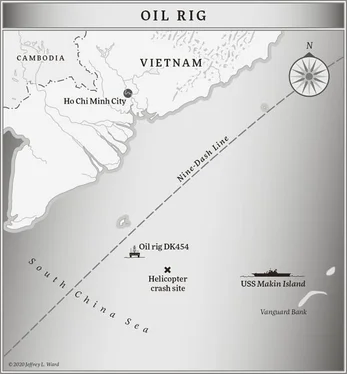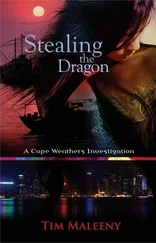Her only solace came from watching Mamut. He knew the high cost of freedom, and was all too willing to pay it.
A true believer, Ma “Mamut” Jianyu was the son of a Han father and Uyghur mother. He’d been an officer in the People’s Liberation Army Second Artillery, learning hand-to-hand combat, field tactics, strategy, and, most important, the tactical methods of the Chinese military and police.
Ma taught doctrine as much as he attacked targets, ensuring his flock of nameless fighters were focused on the same righteous cause. Their fight was not, he said, a religious one. Religion was decided by the heart, not the gun. No, their struggle was for independence from the Chinese boot. Every action they took had to be done under the notion that they were agents of the legitimate free state of East Turkestan. The other “Stans” in Central Asia had gained their independence after the Soviet Union dissolved. It stood to reason that the Uyghur Autonomous Region should be afforded the same treatment by China.
It made no sense to ask the tyrant for independence. One simply had to act independently. Wuming—the Nameless—were soldiers, agents of their legitimate state, fighting a war.
Mamut ran his operations with the righteous indignation of an Israeli hit squad, the brutality of a Russian active measures unit, and the sophisticated finesse of a Hollywood assassin. Like drug lords in Mexico and South America, he employed falcons—young people who acted as his spies. Being the most heavily militarized area of the world came with a price. Youth, even nationalistic Chinese youth, were uncomfortable with the oppressive surveillance tactics of the Bingtuan. Everyone had something to hide.
A few questions to the right bureaucrat’s disgruntled daughter revealed that officers from the special police detachment down the block often commandeered the apartment complex’s community center, chasing off the resident teenagers who liked to smoke weed and play video games in the wee hours of the morning. Captain Lo and two of his friends had just returned from a three-day trip to Karamay with a truckload of Uyghur separatists who would be put to work in the oil fields as part of their reeducation curriculum. It made sense that these road-weary Bingtuan officers would come here to blow off a little steam.
With his pistol in his left hand, Perhat checked the door with his right. It was unlocked, so he pushed it open a crack.
The knob was on the left and Mamut stood on that side of the frame, ready to slip in the moment his Uyghur friend pushed it open on his signal. Medina stood behind Perhat, her pistol out of her pocket now, clutched in both hands, pointed at the ground between her boots. It was her job to protect their rear until they made entry, at which point she would be third in, behind Perhat.
More shooting punctuated the loud music of a movie soundtrack.
Perhat reached behind him and tapped Medina on the elbow, signifying they were about to make entry. The door yawned open a hair, allowing the small team a quick glance to orient themselves.
Captain Lo and his two companions sat sideways, at a slight angle to the door. All wore their black battle-dress uniform pants. All were shirtless. The one in the center stretched out on a sofa with his feet toward the flat-screen television mounted on the far wall. He nursed a bottle of beer while the man to his left brandished a combat knife at the screen. All three men shouted their support to Wu Jing, the muscular actor in the skintight white T-shirt playing Leng Feng as he battled the heartless American mercenaries. “Blood for blood!” An action hero of the highest order, Wolf Warrior rescued the downtrodden and saved weak African nations from exploitation by a morally corrupt United States.
“Blood for blood!” the policeman shouted again, banging the hilt of a combat knife against the couch. Ironically, the knife was an American design, likely manufactured in China.
Medina did a quick check behind her to make sure they were clear, and then tapped Mamut on the thigh, signaling that she was ready.
Had this been a Hollywood movie, the ominous music would have begun. There was no announcement, no witty repartee or challenge to the bad guy, before he met his fate.
Only rehearsed, machinelike precision.
Mamut took the lead through the doorway, shooting the farthest soldier in the back of the head. Suppressed pistols spat in quick succession as Perhat followed a meter behind, shooting the nearest man. Captain Lo caught a reflection in the television screen and half turned at the same instant both men put bullets into the back of his head. Medina followed up, twisting at the waist just as Mamut had shown her as she moved down the line, putting another bullet in the back of each head.
In effect, all three were shooting at the same time, overlapping their fields of fire. The shirtless bodies danced at the thudding impact before pitching forward. Subsonic rounds tended to remain inside the cranial vault, but Captain Lo had turned, allowing one bullet to destroy his lower jaw. The other two died with the solemn expressions of hero worship they’d had on their faces from watching Wolf Warrior 2 a few breaths before.
Medina found her vision locked on the scene, unable to move her feet, until Mamut patted her arm, pushing the muzzle of the pistol gently toward the floor.
She blinked, taking slow, deliberate breaths to clear her mind. Perhat scanned the room, looking for security cameras. Considering the oily odor of marijuana in the air, Medina doubted cameras would be a problem.
Mamut leaned over the couch, one last check of the bodies. “We must pick up the expended brass,” he said. “Each one has to be accounted for.”
Perhat brandished his pistol toward the flashing screen. “Wait, wait,” he said. “They are coming to the crossbow part.”
“The what?”
The young Uyghur stood transfixed in front of the television, pistol dangling in his fist, three dead men at his feet. “Watch for yourselves,” he said, entranced, breathless. “It is amazing. Leng Feng, the Wolf Warrior, fashions a crossbow out of material he finds lying around and uses it to kill the mercenaries and save the captives.”
Medina returned the pistol to her pocket and gave an indignant scoff as she stooped to pick up spent cartridges at her feet.
“What?” Perhat said, wagging his head. “I know the Han Chinese savior stuff is all lies, but I like the action. Okay?”
“Something is seriously wrong with you,” Medina said, picking up a fourth piece of brass.
Perhat chuckled, deadpan, still watching Wolf Warrior save the day. “If you are only becoming aware of this, then you are not nearly as observant as you need to be. There is something seriously wrong with all of us.” His eyes flicked momentarily to her, then back to the television. “Some may even be beyond help. But after all, God has only damaged people to work with. No? Anyway, I like action movies. As soon as they make one with a Uyghur hero I’ll throw away my DVDs of Die Hard and Wolf Warrior .”
“It is fine,” Mamut said, counting the brass on his open palm to see that it was all accounted for. “It is well and good that you are familiar with this trash. Such things are all the rage among youth today. The media even speaks of Beijing’s Wolf Warrior diplomacy. It would be foolish to disregard this piece of culture … propaganda though it may be.”
“Exactly,” Perhat said.
“But there is no need to wallow in it,” Mamut said. “Now let’s go.”
They took an indirect route back to the van. It was late enough that the checkpoints on Highway 312 would be manned by different people, but they remained in Urumqi for the rest of the night, so surveillance cameras would not record them leaving the city so quickly after they’d only just arrived.
Читать дальше











![Александр Ирвин - Tom Clancy’s The Division 2. Фальшивый рассвет [litres]](/books/417744/aleksandr-irvin-tom-clancy-s-the-division-2-falsh-thumb.webp)
